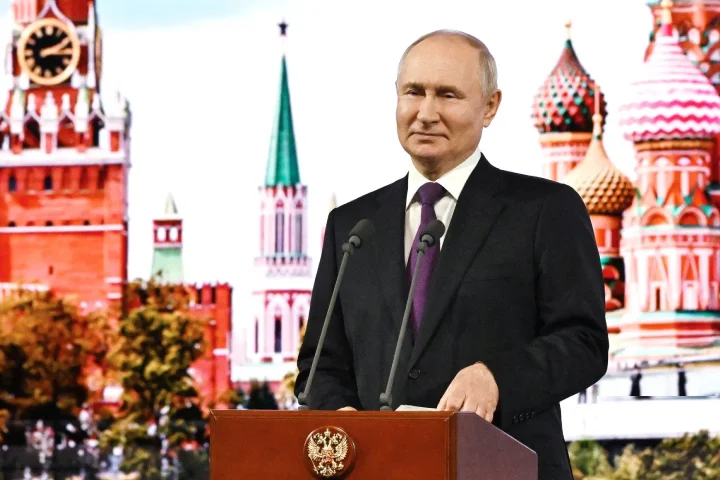Russia’s incumbent President Vladimir Putin is projected to win his fifth term as head of state by a historic margin.
According to Russia’s CEC, almost 95 per cent of the votes have been counted as of 1 a.m. Moscow time and Putin is leading the race with an estimated 87.3 per cent.
Under Russia’s presidential election regulations, a candidate who receives more than 50 per cent of the votes will secure victory.
Communist Party candidate, Nikolay Kharitonov, who had also contested against Putin in 2004 and come second, is expected to come in second this time too, with 4.7 per cent, followed by Vladislav Davankov of the New People party with 3.6 per cent, and Leonid Slutsky of the Liberal Democrats at 2.5 per cent.
Exit polls, conducted across the country, earlier showed similar trends, with the incumbent head of state expected to win the election with 87.8 per cent.
These were the first polls since the 2020 constitutional amendment, which set a limit of two presidential terms – but not retrospectively, thus allowing Putin, who succeeded Boris Yeltsin as President in 1999, and won the polls in 2000 and 2004, and then again in 2012 and 2018 (with a stint as Prime Minister from 2008 to 2012) to contest this year, and even 2030.
This year’s election clocked a historic high voter turnout, which topped 74 per cent, according to data from the CEC.
More than 74 per cent of Russia’s 112.3 million voters had cast their ballots in the presidential elections by the time polling stations closed on Sunday, the Russian CEC reported, in a historic turnout for modern Russia.
Voting was held over three days, between March 15 and 17 in the first multi-day election. Voters in 29 out of 89 Russia’s regions, including Moscow – the nation’s most populous region, incorporating the capital city – also had an opportunity to vote online, in another first, and 90 per cent of the over 4.7 million people who applied, used this format.
The 2024 election is also the first in which voters in four “new Russian regions” – Kherson and Zaporozhye, as well as Donetsk and Lugansk People’s Republics – exercised their franchise.
The highest turnout at polling stations was reported in the regions of Chechnya (96 per cent), Tuva (more than 94 per cent), Kemerovo Region (94 per cent) and Donetsk People’s Republic (88.17 per cent). Low turnouts were recorded in the Tomsk and Altai Regions as well as in Russia’s Republic of Karelia, where it was still above 51 per cent.
Some sporadic attempts at disrupting the work of the polling stations occurred, involving attempts to set ballot boxes on fire or to pour a dye into the box to destroy the votes in it, Russian media reported.
CEC head Ella Pamfilova also said that more than 280 hacking attacks on the online voting system had been repelled.




















